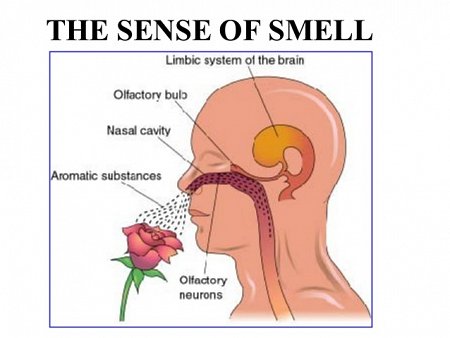It is a great moment when one has penetrated through taste, smell, and touch, and one confronts the naked essence of movement, balance, and life.
The Etherization of Smell
When pure thinking developed through The Philosophy of Freedom and an intensification of Goethe's experimental work with sense-perception enhance each other, we develop the forces to actualise the new Michaelic Yoga.

"The one striving for Imagination wends his way through the sensations of smell, taste, and touch, penetrating into the inner realm so that the experiences stemming from balance, movement, and life come forth to meet one. It is a great moment when one has penetrated through taste, smell, and touch, and one confronts the naked essence of movement, balance, and life... What one finds is a true organology, and above all one finds within oneself the essence of that which is within equilibrium, of that which is in movement, of that which is suffused with life...".
Rudolf Steiner lecture of 3 October 1920, GA 322
The problems of smell will be better understood if we know that the lower bodily organs and also the inner parts of the brain have a strong astral, addictive tendency toward sweetness of all sorts, including many pleasurable but also distasteful scents, tastes and touches. Therefore, when we actually empty the scent's fulfilling pleasurable presence we are left with a negative shadow of the very same aura and intensity. Producing this empty nothing, or an extract on the negative side (-1) of the scent's quality, is difficult, because the scent haunts our attention and clings to it. For a long time, we still feel this remnant of the highly diffused scent as a disturbance at the background of our attention. Slowly and reluctantly it becomes rarified, then eventually unnoticeable, and finally it is ready to take its leave from our attention. But we will have to learn at this point to humbly admit that we are attached to the smell much more than it is attached to us. When we discover the cause of our difficulty in getting rid of our attachment to the scent, we have to face this fact. We find out that what actually makes it stick to us so stubbornly is caused by (beside the more easily recognizable attachments to the last vestiges of the pleasurable sweet scent itself), a much deeper unconscious experience.
This experience comes to consciousness only reluctantly and in it we find that the bodily sensual impressions, perceptions and sensations of smell (tastes and touches, and so on) actually ground us in our body, nay, really make the body into our individual body. We face the fact that we have a ‘sentient or sensation body' that produces and grounds an embodied existential feeling of self. We are constantly capturing the subtlest cosmic radiations and sensations and condensing them into an individualized sensation body and embodying our self in its ‘astral flesh’ of sensations, pleasures and displeasures, desires and affections. We discover our safe, sensual-sentient cave, warmed up by digestion and the blood, inwardly self-loving, embracing and welcoming.
We alone possess it as a private hideout (actually 'hide- in') to use and occupy according to our needs and desires. Each morning when we wake up and indeed at every moment of our waking life, we constantly fall in love with and fall into this sentient- soul body. We smell ourselves inwardly all the time, and taste and touch ourselves inwardly, and this constant self-smelling, tasting and touching that never stops in the unconscious depths, grounds us in our sentient soul and body. Thanks to this unconscious astral process of bodily self-perception, sensation and enjoyment, in which the forces of smell play a central role, we have a body that we love in the most egotistical sense of the term, more than any other body among the infinite number of earthly and cosmic bodies.
So, trying to let go of this self-loving and self-constituting, warm body of smells, tastes and external as well as internal bodily touching and sensations, is like making a volitional choice to die; separating from a beloved and comfortable place of secure and hidden, private, earthly dwelling. Only when we are ready to face this fear and let it go, will the scent aura and substance really be free to leave us. We have also liberated it from its imprisonment in our sentient body- and soul building processes, and it can therefore return to its true cosmic stream of becoming. As an act of thankfulness for this selfless liberation, it may gracefully allow us to participate in its return to its cosmic source and share its true being and becoming as a real objective world force from now on.
Read more in the book, Cognitive Yoga: Making yourself a new etheric body and individuality

 עברית
עברית